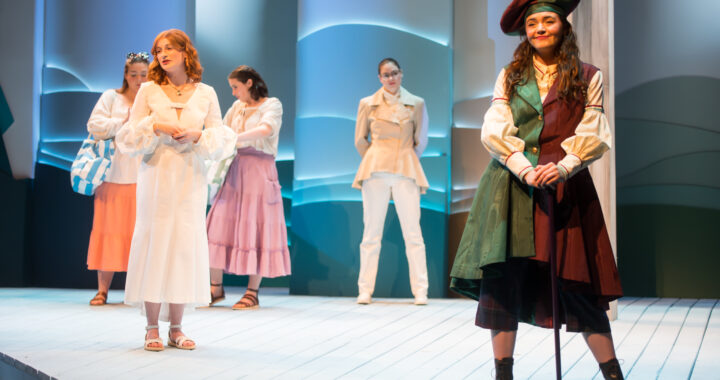Civil Rights Activist Speaks at UMW
3 min readBy FRANCES WOMBLE
“Poverty makes ugly things happen to people,” Roger Wilkins said in his lecture on Nov. 18.
Wilkins, a civil rights activist, attorney, journalist and professor, addressed a group of students, faculty and Fredericksburg citizens as part of the James Farmer lecture series.
In his lecture, Wilkins connected the civil rights movement and the current struggle of poverty.
“It is an aspect of American society that is disturbing to me to no end,” he said.
“I was a child of the Depression,” Wilkins said. “It’s not over for the poorest people in our county. I am deeply troubled by the fact that we Americans are not dealing affecting with the problems of the poorest kids in our country.”
Wilkins related this cyclical tendency to various events he witnessed involving children born into poverty.
He commented on the tragic nature of children who grow up in underprivileged urban areas, saying they often get sucked into violence by their limited access to resources outside of their communities.
“I was very touched on the vicious cycle of children in poverty,” President Rick Hurley’s wife, Rosemary Hurley, said after the lecture. “It is very perplexing to me because I believe in hugs for children”
Sophomore Machenzi May agreed.
“I was interested in the modern view of poverty in D.C. and civil rights,” she said. “It’s important since it’s so close. It was also good to get a first hand view.”
Wilkins told another story about children in poverty. He described a story of when his wife was at the grocery store while pregnant and she encountered a young girl who was also pregnant.
“We had a baby girl and so did [the young girl],” he explained. “All of a sudden, I realized the gap between them.”
“I think that the United States has a made a great error,” he continued. “We didn’t invest in children and schools, and they are almost guaranteed to become savages and predators.”
“I guess if there is any message I would give to you based on my own experiences as a father, as an American, as a civil rights activist – we need to be energetic about these inner-city kids,” Wilkins urged.
“We need to be the same way about poor kids in Appalachia. The only difference between them is that the city is more lethal because there are more guns there.”
“When I was in college,” Wilkins concluded, “ a professor said, ‘You’re the future of the country. You’re going to run it,’ and we giggled. We could not imagine that someday we would run the country. Well, I was there. I helped. I think – I pray – we need to think about the future and how to educate our children. A country that doesn’t take care of its children is gambling with its future.”
Although the question and answer session was cut short, “I have a broken elbow and a nervous wife,” Wilkins explained, one student stood up and described growing up in the same neighborhood Wilkins addressed.
The student said he was the first one in his family to go to college, and he said he owes that to his mom’s dedication. He said in his neighborhood, people are happy just to wake up in the morning.
“I ran up and hugged him afterward,” Rosemary Hurley said. “I was most touched by [him]. I am very happy he is a student at UMW.”











